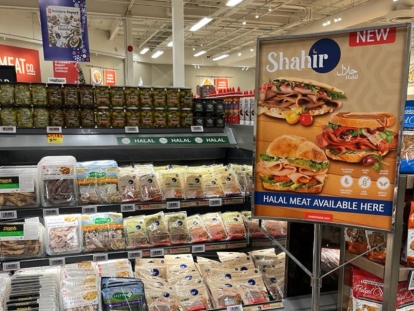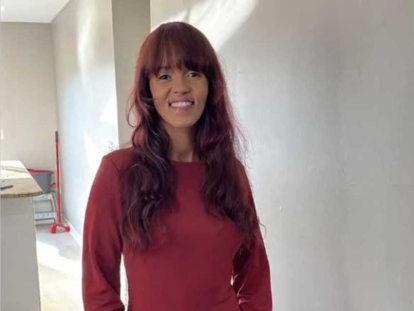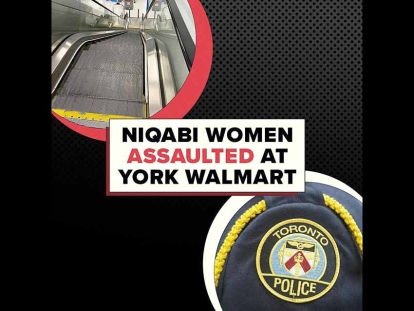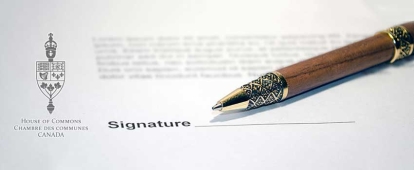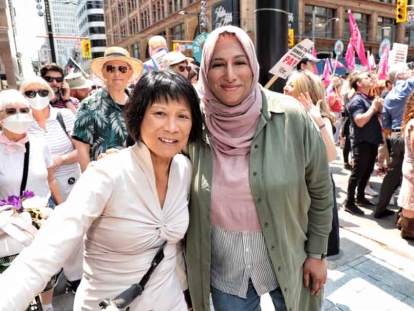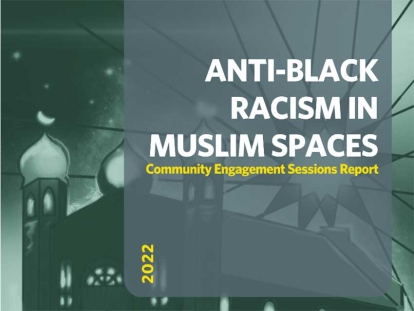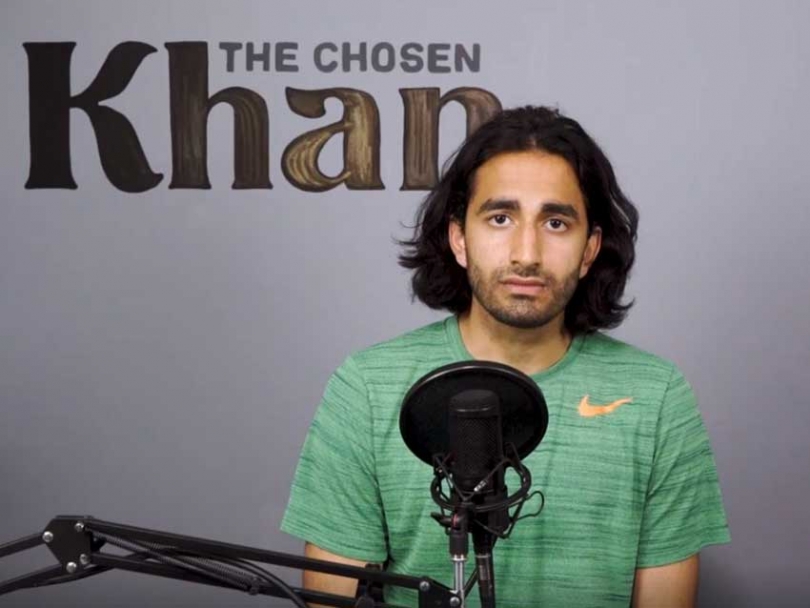 Vancouver-based podcaster Abubakar Khan's recent episode "I'm Racist, Where's My Counter-Protest" reflects on his own complicity in racism and discrimination in Canada.
Vancouver-based podcaster Abubakar Khan's recent episode "I'm Racist, Where's My Counter-Protest" reflects on his own complicity in racism and discrimination in Canada.
Aug
Challenging the Racist Within: Vancouver-based Pakistani Canadian Podcaster Confronts His Own Sense of Caste, Racial and Religious Superiority
Written by Chelby DaiglePakistani Canadian Abubakar Khan, who has gained national recognition in Canada’s Muslim communities for his interfaith initiative to open up a Vancouver mosque as an emergency homeless shelter last winter, runs his own podcast called The Chosen Khan.
Recently, he participated in the counter-protest organized against a rally by White Supremacists and Islamophobes in Vancouver. The counter-protest was overwhelmingly larger than the racist rally, gathering over 4,000 people.
However, Abubakar wants people, particularly Muslim Canadians, to address the reality that the idea of being superior to others based just on identity is very prevalent in Muslim communities; therefore attending protests to attack White Supremacists, while refusing to address discrimination within our own communities, is hypocritical.
On August 22nd, he posted the episode “I’m Racist, Where’s My Counter-Protest”, where he explored his own biases against Pakistanis from a lower caste, Black people, Chinese immigrants, and non-Muslims.
Muslim Link interviewed Abubakar about why he made this episode and the impact he hopes it will have within Muslim Canadian communities and anyone who is serious about addressing the problem of racism, Islamophobia and discrimination in Canada.
Tell us about attending the counter-protest against the Islamophobic rally in Vancouver.
I attended the counter-protest on Saturday August 19 in Vancouver. I recall as I made my way there that the energy was electric. I made my way right to the top of the platform where the speakers would be presenting. I remember noticing how the majority of people in attendance were white. A quick observation. Everyone was chanting and it felt quite surreal. The mood was very happy go lucky. Like I was attending a music festival. However, once the event began things changed.
The first set of speakers were Indigenous women and they spoke straight from the heart. They talked about the horrendous circumstances they were subjected to. The atrocious acts committed against them and their family. One woman described her children being forcibly taken from her by the state. She let out a tirade against the people that were in attendance, saying that it took a white woman to lose her life to bring people out. I couldn’t help but realize that she had a valid point. I had organized a rally against racial discrimination on the International Day for the Elimination of Racial Discrimination earlier this year. No one had lost their life prior to the rally. About 100 people were in attendance. At this protest it was over 4000 people. Point taken.
After the Indigenous speakers, an all-white carnival band performed their music. Personally, for myself this didn’t make much sense. The music drowned out the raw feeling those Indigenous women had cast upon the crowd. After the music subsided there were many different speeches. They all had powerful messages, but they were all different messages. From a young Sikh woman launching a tirade against white people, this led a white woman next to me to shake her head and leave, to the mayor speaking about how there is no place for hate in Vancouver. There's always space for it. Otherwise we wouldn’t be having this rally.
I left before the counter-protest ended. I had been to my fair share of these events. I remember walking out of there, knowing that many people here were elated, feeling that they had done their part. They showed up on a Saturday afternoon. They showed those racists who's boss! I left that event feeling as I had before. Nothing had changed. The city came together, took pictures, made videos and felt good. Yet, the next day everything went back to normal. A few days ago, a White woman had gone on a racist tirade against a Filipino woman on the Sky Train. It does not surprise me. These protests are great because they never force us to look at the real racist-The Racist Within.
Your initial response on social media to the counter-protest was pretty positive...you actually stated that you felt you "defeated racism". How did you move from that statement to recognizing and "coming clean" about the biases, stereotypes and sense of superiority you hold as a Pakistani Muslim Canadian/American?
I had posted that status update as a prelude to the video. I left the protest with my mind set on creating a video where I talk about the racism within myself. The status update was created for the people that had felt they had defeated racism. It began with the statement that I felt as if I had "Defeated racism", but it ended with the theme of introspection.
You address a rather taboo subject among South Asian Muslims-caste. Caste is usually a topic associated with South Asian Hindus, but it is followed by many South Asian Muslims. In your podcast you identify as being from the Rajput caste, which is considered a relatively privileged caste in both Pakistan and India. Why did you want to address the sense of being superior to other Pakistanis that your Rajput identity gives you? How do you hope to address this issue as you move forward in your work within Pakistani communities?
The more I learned about the Prophet Muhammad's (PBUH) life the more I began to realize that I was not following it. One of the major points was that the caste system I had been brought up in couldn’t be found anywhere in Islam. Thus, I began to learn about the caste system in detail. This led me to realizing that it was another factor in dividing people. I did feel superior to other South Asian people because I was a Rajput as a kid. As I got older I began asking questions. What made me a Rajput? What made me superior to someone that was a Jatt or a Pathan?
I was born in the United States; my family has been in Canada since about 1908. What part of my identity made me a Rajput? The more questions I asked, the more I realized we moved away from the religion. We let the culture take over. The religion of Islam is about unity and equality. The Prophet (PBUH) said that: "No one who has the weight of a seed of arrogance in his heart will enter paradise." Thinking that I was above people because I was a Rajput held a much greater weight than a seed. I realized I needed to change my ways. Hence, why I began to attack the caste system. I was tired of having another man-made title add to my arrogance. In the future, I will continue to stick by my attitude against the caste system. Within the Pakistani community, I will look down upon no one, especially not based on their caste. I am no one. Whoever you are, whatever the world has led you to believe you are, ultimately you are a human being. Islam has taught me that.
You discuss the reality that you were exposed to Pakistanis who openly articulated having a sense of superiority to Black people. In the podcast, you share the story of learning about how a convert Black Muslim athlete you admire struggled with anti-Black racism from Pakistanis in the US. Why was it important for you to raise this issue? What specifically do you feel needs to be done to address the unfortunate reality that this prejudice is seriously impacting Muslim organizing, both mosque-based organizing and even Muslim organizations focused on civil rights in both Canada and the US?
In my home, I was never raised to feel superior to Black people because my father grew up among many Black people. However; outside my home I would hear the comments. I would watch as my cousin, who is Pakistani, that was slightly darker skinned, was looked down upon. How he was subjected to snide remarks about his skin colour. My light skin privilege became apparent to me at a young age. The Black athlete you talk about his name is Zaid Abdul Aziz. I will never forget his face when he recounted how he was treated at the mosque by Pakistani people. I saw the hurt in his face. He had converted and was learning about the Deen (religion) and his supposed fellow followers did not consider him an equal. That was why I raised the issue. There is no room for racism in Islam. The Sahabah Bilal ibn Rabah was a Black slave. He was chosen by the Prophet (PBUH) as the first ever muezzin (person who does the call to prayer). A Black man made the first ever azaan (call to prayer).
It baffled me that mosques could be racist, but I began to witness it first-hand. When I was younger the mosque in Kent Washington was a melting pot. Everyone was going there. Black, Brown, White, you name it. There was so much love in the air. As the community became more established, the cultures began to take over. I would watch mosques pop up for Pakistanis, or for Indians, etc. It was not said, but once a group decided to make a mosque they created their own board and they became divided. I watched my beloved mosque become institutionalized.
That was why I was adamant about opening the Vancouver mosque as a shelter. I just wanted a building open to anyone. Regardless of your socio-economic status, your skin colour, or even your religion. I believe that’s what mosques are supposed to be. How did the religion of Islam grow, if the mosques were locked and only for certain people?
You discuss a prejudice that is Canada-wide but is often ignored, and that's prejudice against Chinese communities, particularly those who are newcomers to Canada. Why was it important for you to name this prejudice, particularly as someone who lives in Vancouver?
Growing up in Vancouver, I was no stranger to all the racist comments made about Chinese people. I made them myself. Vancouver is predominantly Chinese, hence why I brought it up. We never say it out loud, but whisper it under our breath.
I believe there's many reasons for this. The language barrier being the first. I've learned we usually say the most things about the people we know the least about. That was true in my case. It was only once I became good friends with a Chinese immigrant that I realized all the biases I had against his people were completely wrong. His English was not good at all, but overtime it improved drastically and he was able to let his true self shine.
The second reason is because we rarely venture out of our own echo chambers. So we rarely come into proper contact with people that don’t look or speak like us. We see them no doubt about that, but we rarely have to converse with them. That leads to tolerance and no room for acceptance. This is why I thought I should bring it up. It's something that I have no doubt I will dive deeper into as time progresses. God willing.
You name a very serious but often overlooked prejudice amongst Muslims against non-Muslims, a reality that frankly Islamophobes are often quick to point out. How do you feel Muslims can address this sense of being superior to non-Muslims without adding fuel to the fire of Islamophobia?
I went to Madrasah (traditional Islamic school) for many years to memorize the Quran. The majority of my early years were spent there. It's safe to say I had zero friends that were non-Muslim. Again, I believed I was superior because I had a one-way ticket to heaven and everyone else was going to hell. Why should I associate with them? It was only after going to many other high schools, a private all boys Catholic school included, that I began to realize that was not a healthy mindset. If I believe I'm going to heaven, and you aren't doesn’t that add to my arrogance?
A quote I often bring up is: "God waits till judgement day to judge us. Who am I as a simple human being to judge you now?" I am no one. I believe as Muslims we can't be prideful at all. Islam does not have room for pride. The Prophet (PBUH) did not think he was better than anyone. Who am I to judge a neo Nazi? All I can do is live my truth. Follow the religion and people will know you're a Muslim without you even having to say it. I think that’s where the problem lies. I didn't really live the religion, so I always had to remind people that I was a Muslim. In fact the Prophet (PBUH) brought many people to the religion simply by living it. I think if we live with love rather than with fear we can counteract Islamophobia.
Abubakar Khan would love to know what Muslim Link readers think about this episode of The Chosen Khan, watch it online here.
This article was produced exclusively for Muslim Link and should not be copied without prior permission from the site. For permission, please write to info@muslimlink.ca.

